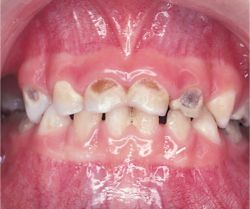 One issue I which address in my book is why parasites tend to turn more benign when they approach saturation of their host population.
One issue I which address in my book is why parasites tend to turn more benign when they approach saturation of their host population.I still probably do not yet know the whole story - but I think I now understand some more parts of it:
- In a mostly-saturated population, burning through the host's resources rapidly becomes a less effective strategy - since the rate at which new infections can be spawned goes down. So: keeping the host alive for as long as possible starts to look like a more realistic parasite strategy.
- Parasites that saturate their host populations are subjected to different selection pressures. In particular - in the common case where the first parasites to arrive have an advantage over later arrivals - parasites become more "interested" in infecting hosts early in their lifecycle. That means infecting children - and the best people to infect children are their parents and family. That results in more vertical transmission down the host generations - so: in such cases, gene and meme interests would become more closely aligned.
However, the first hypothesis is probably of low relevance to memetics: memes don't usually manage to execute those kinds of nasty strategy in the first place.
The second hypothesis may be more applicable to memes.










No comments:
Post a Comment